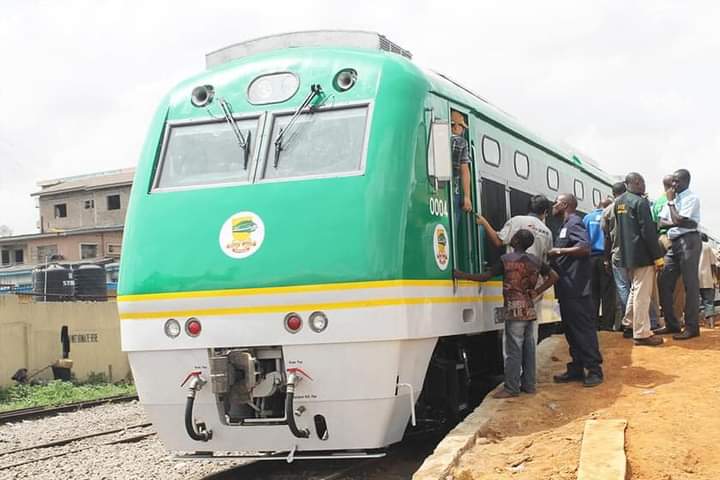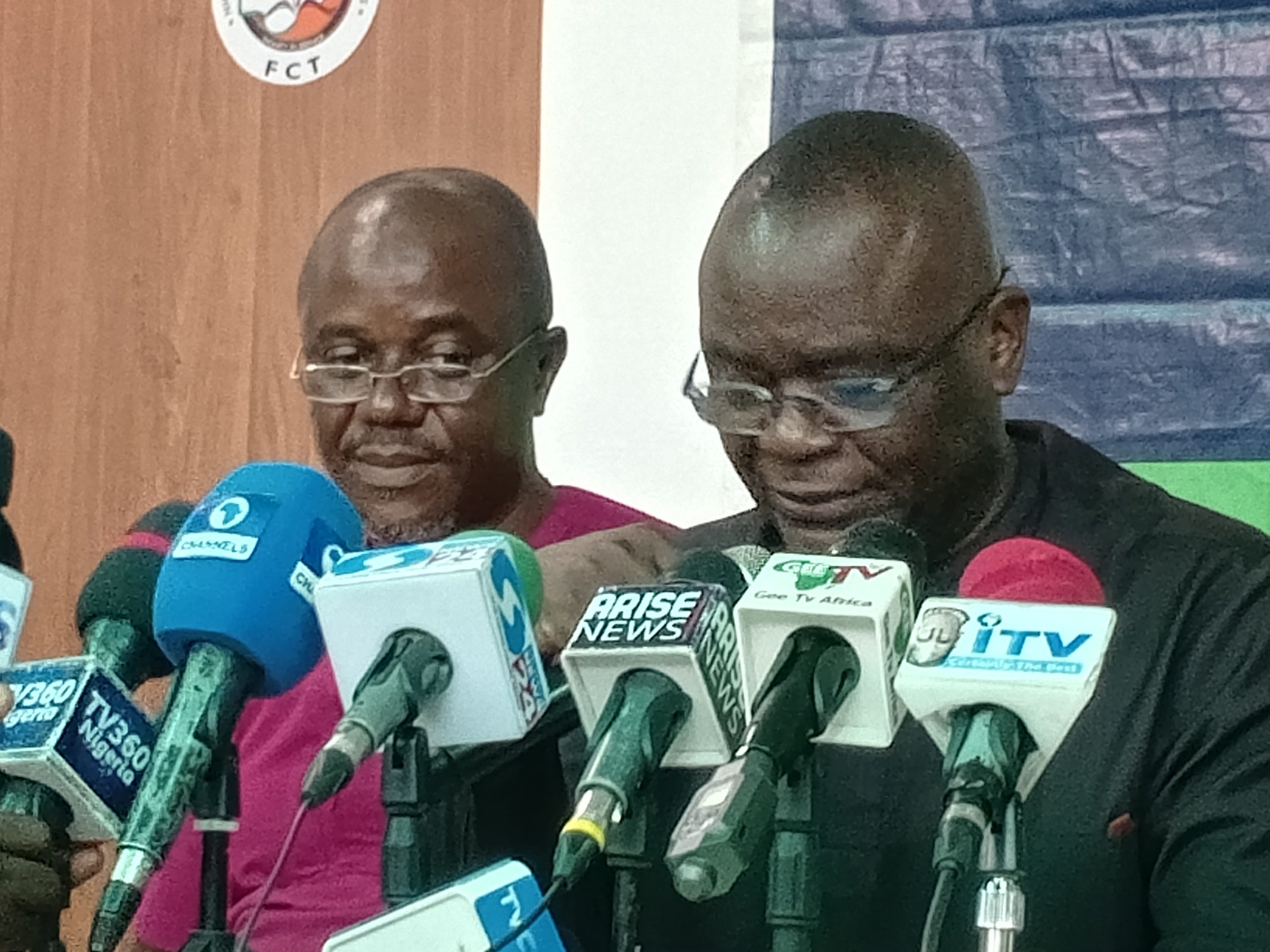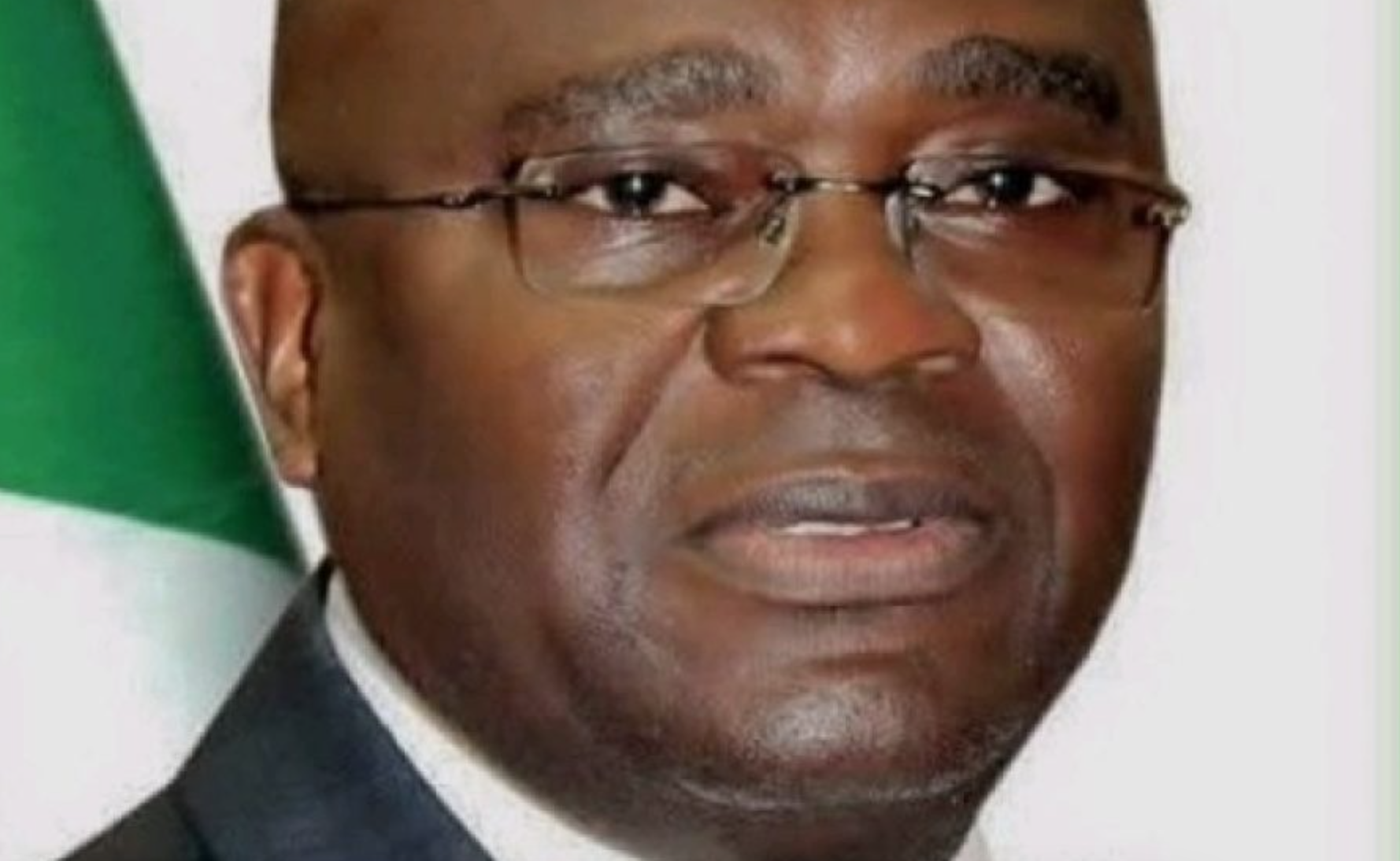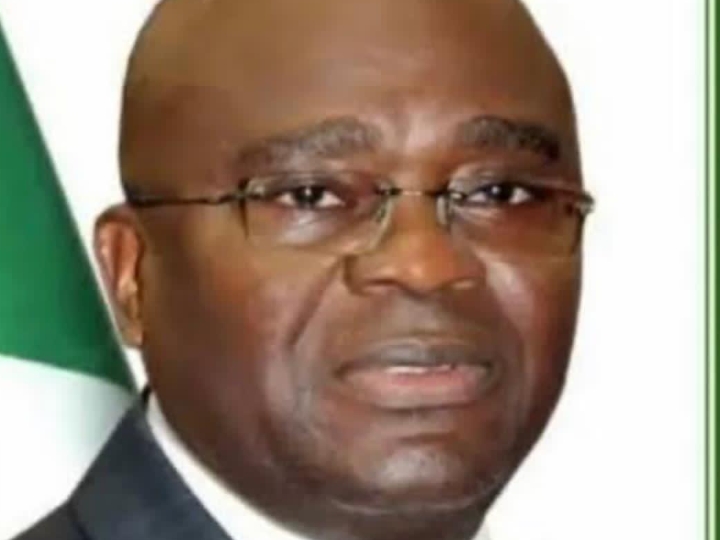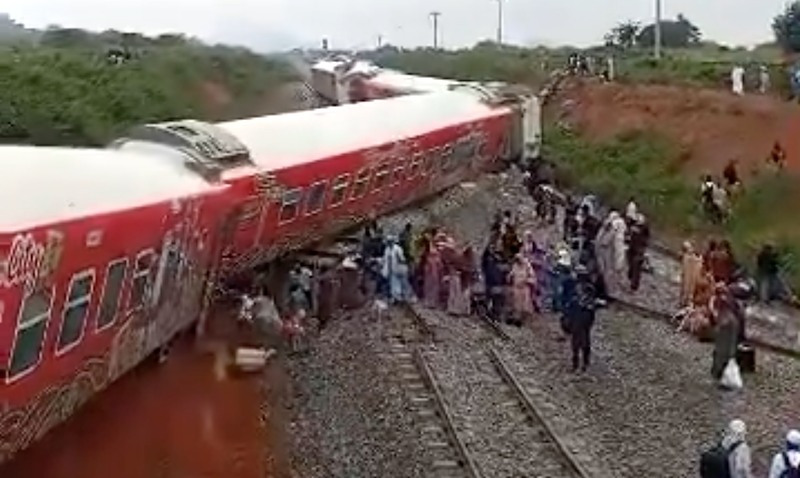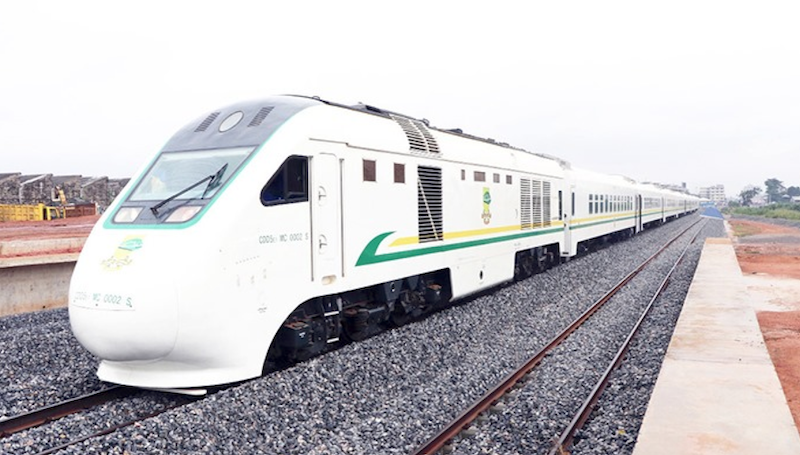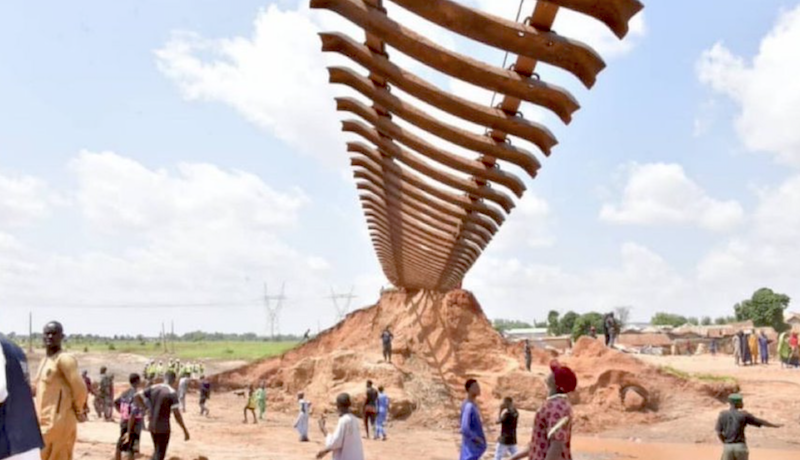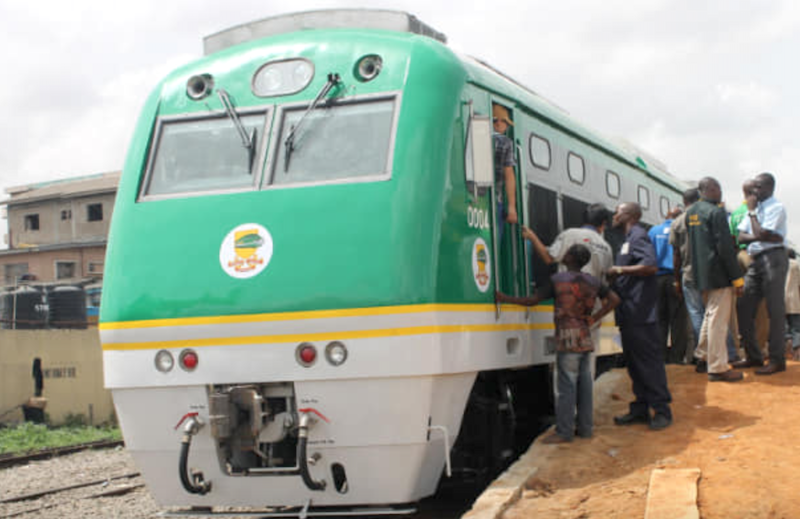The Managing Director of the Nigerian Railway Corporation (NRC), Dr. Kayode Opeifa, has publicly apologized to the Nigerian media for verbally assaulting Nigerian Television Authority (NTA) journalist Comrade Ladi Bala while she was covering the aftermath of a train derailment along the Abuja-Kaduna rail corridor.
Speaking at a press conference held at the Nigeria Union of Journalists (NUJ) FCT Council Secretariat in Abuja on Sunday, Dr. Opeifa explained that his remarks, made under intense pressure while managing the crisis, were misunderstood as hostility towards the press.
Comrade Bala, the immediate past president of the Nigerian Association of Women Journalists (NAWOJ), was reportedly subjected to unprovoked verbal attacks by Dr. Opeifa while performing her official duties at the derailment scene.
The NUJ FCT Council condemned Dr. Opeifa’s conduct, describing it as dehumanizing and a serious violation of press freedom.
During the apology, Dr. Opeifa said: “I wish to sincerely apologize for the regrettable remarks I made, which were directed at a seasoned journalist and reflected poorly on both the NUJ FCT and NAWOJ.
“Acting under pressure and in the heat of the moment while trying to ensure safety, I uttered some unkind words for which I take full responsibility.”
In recognition of Comrade Bala’s resilience, professionalism, and dedication to factual reporting despite the unfortunate incident, Dr. Opeifa bestowed upon her the honorary title of “Ambassador for Media Advocacy.”
He explained that the derailment involved eight coaches and one locomotive, placing huge demands on his team to coordinate rescue efforts, inform the presidency and the public, and activate emergency procedures simultaneously.
On the day of the accident, the NRC’s newly revised emergency protocol was immediately put into action, engaging key agencies such as the News Agency of Nigeria (NAN), National Emergency Management Agency (NEMA), Federal Ministry of Health, Kaduna State Government, FCT Administration, and Nigerian military.
Dr. Opeifa said there were 618 passengers onboard at the time of the derailment. Seven coaches and the locomotive were damaged, with around 20 passengers sustaining injuries—seven critically.
The NRC quickly provided replacement coaches to evacuate stranded passengers and began contact tracing using passenger manifests within 45 minutes of the crash.
“Some passengers had already traveled to nearby towns, but we managed to trace them by phone,” he added. “I personally visited at least seven injured passengers, including one who had made his way to Zaria.”
He also praised the swift response from the Nigerian Army, Air Force, police, local vigilantes, and other emergency personnel, whose actions saved lives.
Ambulances and medical teams were deployed by NEMA, the Federal Ministry of Health, Kaduna State Government, and FCT Administration. Medical staff on the trains prioritized life-saving efforts at the scene.
Dr. Opeifa tendered a direct apology to Comrade Bala, acknowledging she bore the brunt of his earlier comments:
“To her, I offer my fullest apology. I also extend the same to the NTA, NAWOJ, and the wider journalism community.”
He described himself as a longtime advocate for human rights and trade unionism, recalling his history with the Campaign for Democracy, leadership in the Academic Staff Union of Universities (ASUU) at LASU, and involvement in the June 12 struggle.
“I have fought alongside journalists before; I am not their enemy,” he stressed.
Dr. Opeifa highlighted NRC’s gender-inclusive policies, noting that 50% of the corporation’s management directors are women promoted on merit.
He reaffirmed his commitment to partnering with the media to advance railway development and provide accurate, timely information.
Regarding recovery efforts, he disclosed that by Saturday two coaches and one locomotive were cleared from the crash site, with two more coaches expected to be removed by Sunday’s end.
Engineers had laid about 50 meters of new track to facilitate this.
He praised the resilience of NRC’s rolling stock, noting that business-class passengers were unaware of the accident until disembarking, demonstrating the equipment’s quality and impact-absorbing capability.
On media relations during emergencies, Dr. Opeifa commended journalists for their coverage but urged accuracy to prevent panic.
He also detailed NRC achievements, including reactivation of the Jos–Bukuru line, expansion of the Lagos–Ibadan corridor, and plans to connect major ports like Tin Can, Warri, and Onne to the rail network, describing these as unprecedented in over 60 years of Nigerian railway history.
Dr. Opeifa announced the establishment of a Customer Service and Relations Department to engage passengers and the media, noting the unit had contacted over 400 passengers affected by the Kaduna accident.
He concluded that despite the accident, the incident strengthened NRC’s resolve to modernize railway services and expand rail access in partnership with state governments and the Renewed Infrastructure Fund.
“The media remain our partners, not adversaries. We will deepen collaboration with the NUJ, NAWOJ, and civil society to promote transparency and public trust,” he affirmed.
NUJ FCT Council Chairman Comrade Grace Ike, representing journalists, said the council would continue defending press freedom and resisting intimidation. She welcomed the public apology as a step toward rebuilding trust while stressing that the NUJ FCT has zero tolerance for intimidation, harassment of journalists.
“We will persist in fighting for our members’ rights and freedom of speech, which is a right, not a privilege. I am pleased the MD has joined us in opposing harassment and intimidation of journalists and will champion this cause,” she said.
“With Comrade Ladi Bala as the NRC’s Ambassador for Media Advocacy, we anticipate increased media activities and campaigns promoting the welfare and development of Nigerian journalists, especially in the FCT.”
Senior Special Assistant to the President on Media and Special Duties, Tunde Rahman, who accompanied Dr. Opeifa, praised the NRC boss’s humility in offering the apology and pledged ongoing collaboration between the presidency, NRC, and the media.
